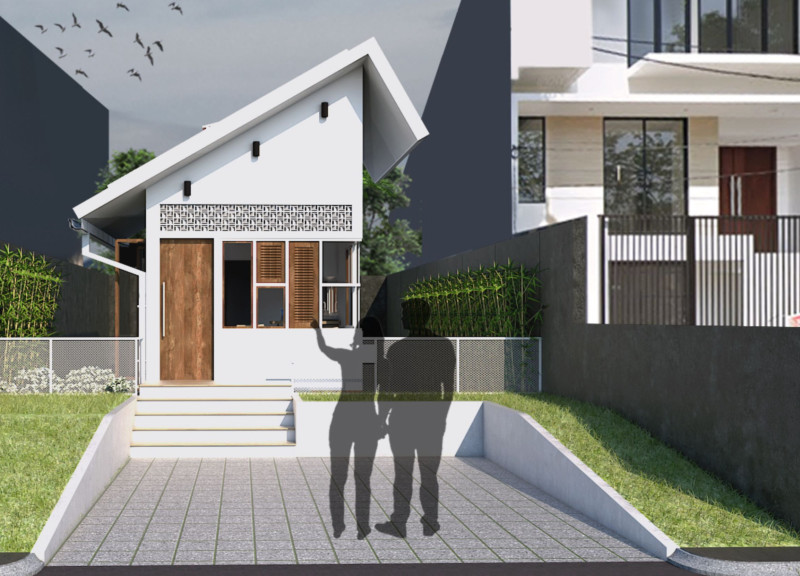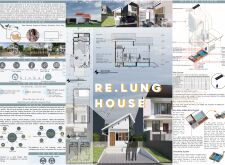5 key facts about this project
Located in Surabaya, East Java, Indonesia, the design addresses the challenges brought on by urban growth, focusing on creating a microhome that promotes sustainable living. Surabaya has high population density and environmental pollution, creating a need for homes that are both functional and environmentally conscious. The overall design concept emphasizes the integration of off-grid systems and urban farming, allowing residents to lead self-sufficient lives within the city.
Architectural Concept
The design centers on the principle of sustainability, employing urban farming techniques such as hydroponics. This approach not only makes efficient use of limited space but also encourages local food production. An off-grid system further supports this goal by enabling the home to operate independently from city utilities, thus reducing its environmental impact and reliance on outside resources.
Spatial Organization
The layout of the microhome maximizes functionality in a compact area. It balances private living spaces with communal areas, promoting interactions among residents. This arrangement reflects the importance of community in urban environments while optimizing the use of available space. The design takes into account the various needs of city dwellers, focusing on providing a comfortable living experience.
Material Selection
Materials chosen for the microhome support its sustainable focus. Clay tiles offer durability and thermal efficiency, suitable for the local climate. Solar panels are essential for the off-grid energy system, ensuring the home can access renewable electricity. The structure is held together with steel beams, providing necessary support. Gypsum plafonds add to the interior's quality and sound insulation, while plywood is utilized effectively throughout the design to enhance functionality and aesthetics.
Sustainability Features
To address environmental concerns, the design includes systems for rainwater harvesting and composting toilets. Rainwater is collected and filtered for domestic use, reducing reliance on public water sources. Composting toilets limit water usage and provide solutions for waste management. These features contribute to a responsible approach to urban living.
The microhome effectively combines practicality with a focus on sustainability, creating a living environment that interacts positively with its surroundings and supports a lifestyle that is attuned to modern urban challenges.



















































